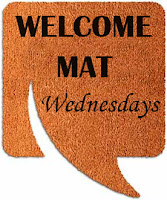How Did You Make Out?
It's the last day of the month, and almost hard to believe. Time goes too fast sometimes. If only it could take pause so we can enjoy more time with loved ones, savor a lazy, rainy afternoon, read another good book, or just finish writing our own. Maybe you're like me. At the start of most months, you set out with a target word count, and other things you want to accomplish. I think I forgot to do this for the month of March. All I know is I wanted to write every day in my current WIP, and draft a good synopsis for my second mystery. I think I held the ideal of getting some editing in too. What did I accomplish? Over 30,000 words in Eleven (bringing the WC to over 52k to date), and a mediocre synopsis (ooh, it needs polishing lol). But I also managed to post 12 blog entries (including this one, less guest posts). Since tomorrow is Forensic Friday around here, I'd like to lay out my goals for April now: 1) finish Eleven 2) finish that synopsis (that is so f




